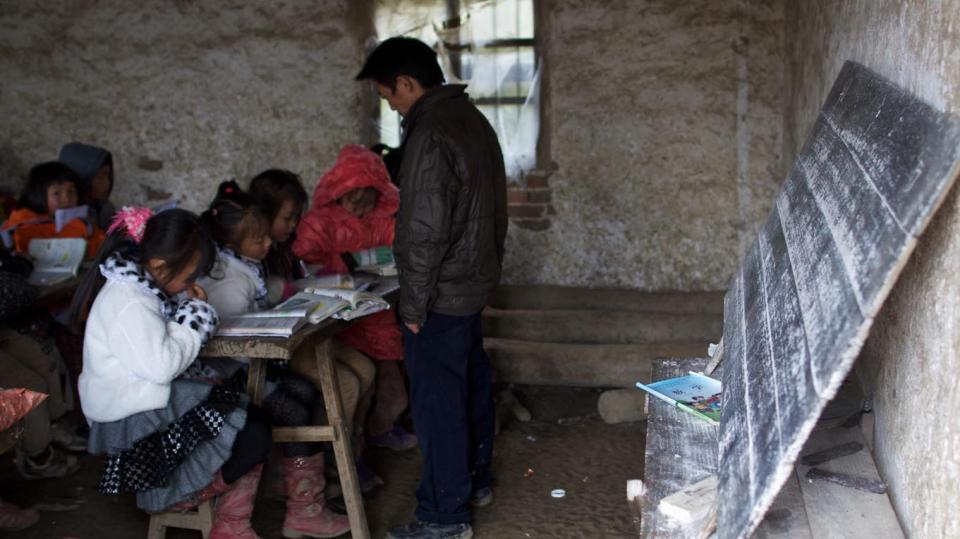China’s current poverty alleviation efforts in education have left some social groups neglected due to too narrow a focus, according to a report jointly produced by scholars from Beijing Normal University and the information center under the State Council’s Leading Group Office of Poverty Alleviation and Development.
These groups have included left-behind children (whose parents head for the big cities to work, leaving them in the care of relatives or to fend for themselves) in less developed areas that are not officially listed as poverty-stricken districts, migrants and urban children from poor families, according to the report, as cited by economic news site Caixin.com.
Left-behind children and migrant children, in particular, often have to go to schools with relatively poor facilities and a lack of quality education due to high costs in tuition and accommodation, the report said.
China’s education-targeted poverty alleviation has so far only targeted the poor in districts officially listed as "poverty-stricken," the report said. But there are various forms of poverty, the report suggested, and thus policies should cater to diversified needs.
In addition to poverty, low motivation and a lack of confidence in study, combined with low self-expectations are causing a growing number of junior high students in poor areas to drop out of school, the report showed. Official statistics in 2013 showed that the number had risen from 3,963 in 2006 to 8,352 in 2011 in the 1,155 schools studied, according to Caixin.com.
The news site cited a survey as showing that, in Northeast China’s Jilin province, only 7.3 percent of students said they dropped out because of economic concerns while 63 percent said they dropped out because they were weary of school.
Meanwhile education has been increasingly seen as useless by particularly children of migrant worker parents, who believe manual labor brings in more tangible benefits, the report showed.
It thus suggested education in poor areas should take a more pragmatic approach and introduce localized contents that can bring in actual profits.

 Old Version
Old Version